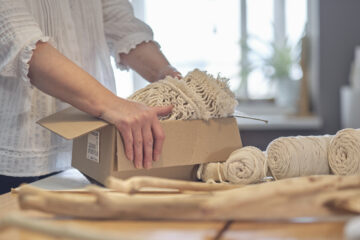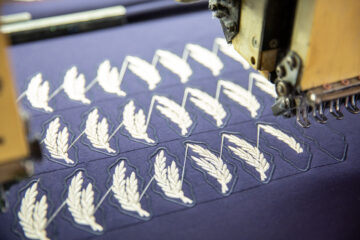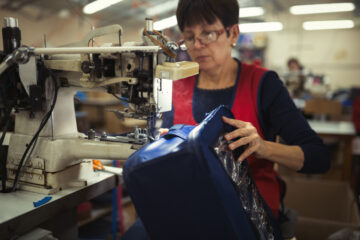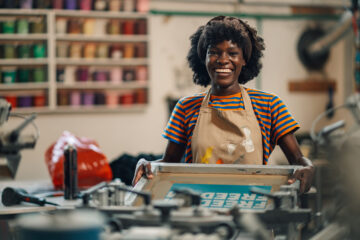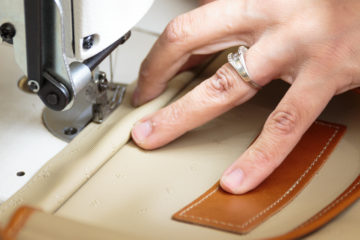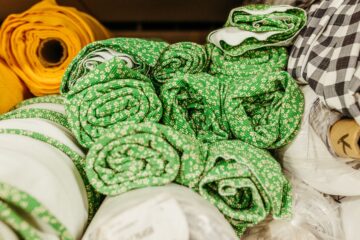The Impact of Outsourcing Die-Cutting Services on Manufacturing
With an industry worth over $250 billion, manufacturing leather and leather goods requires extreme precision and efficiency. From soft leather bags to small leather watch bands, the world of leather manufacturing is a testament to meticulous attention to detail. At the center of the manufacturing process lies die-cutting. Die-cutting is the essential process of cutting, shaping, and forming the leather into its final form. This process requires highly technical machinery and great precision. This is where the impact of outsourcing die-cutting services comes in.
As the industry evolves, many businesses may seek ways to streamline their manufacturing processes and optimize production. One such strategy is to outsource die-cutting services. Keep reading to learn more about the impact of outsourcing die-cutting in the manufacturing process!
Understanding Die-Cutting in Leather Goods Manufacturing
Die-cutting is a specialized manufacturing process that precisely cuts various components and shapes from leather sheets. It is a key technique in producing leather products such as bags, wallets, footwear, belts, and accessories. This process involves using a die, a specially designed template or mold with sharp blades, and a press to cut out or mold uniform leather pieces. Die-cutting is a quick way to precisely cut several pieces of leather or fabric at once.
Die-cutting provides high precision, ensuring that all pieces are identical in size and shape, which is crucial for product consistency and quality. Even a slight variation in size or cut can ruin the aesthetic and usability of a product. Die-cutting also makes the manufacturing process more efficient and cost-effective than cutting pieces by hand. Dies can be created to cut intricate and detailed patterns that would be too difficult or take too long to cut manually. Overall, die-cutting is an essential part of the leather goods manufacturing process, but it can be challenging for businesses to maintain the expensive equipment and create dies for all their products.
The Rise of Outsourcing in Manufacturing
In recent years, the manufacturing landscape has witnessed a significant transformation with the rise of outsourcing. Outsourcing refers to the strategic practice of contracting out specific functions or processes to specialized third-party providers rather than handling them in-house. Many companies consider outsourcing for various reasons, including cost efficiency, access to specialized expertise, and the desire to create a competitive advantage.
Using an outside manufacturing company reduces the need for substantial investments like machinery, maintenance, and skilled labor for in-house operations. This can significantly cut costs, allowing more money to be put into core business operations like marketing. Additionally, outsourcing partners often possess cutting-edge technology, experienced operators, and in-depth knowledge of leather materials. This expertise can result in higher quality and more efficient die-cutting processes. Outsourcing allows companies to leverage the strengths and capabilities of manufacturing partners who excel in their respective domains. This collaborative approach can result in a competitive advantage, as it ensures that products are manufactured with the latest technologies and best practices.
As the leather goods industry continues to evolve, embracing outsourcing is a strategic solution to cutting costs while continuing to create high-quality products. In the rest of this article, we will discuss the benefits and challenges of outsourcing die-cutting services in manufacturing.
Benefits of Outsourcing Die-Cutting Services
Outsourcing die-cutting services poses numerous benefits to the manufacturing process. Here are a few of the primary benefits:
- Access to Advanced Technology. By outsourcing die-cutting, companies can have access to the latest manufacturing technology. Leather goods manufacturing companies keep their machinery updated and keep up with the latest trends in manufacturing.
- Scalability and Flexibility. Manufacturers can adjust their production volumes up or down as market demands change. This adaptability is especially valuable in the fashion industry, where product popularity can fluctuate seasonally.
- Reduced Lead Times. Specialized leather manufacturers have streamlined processes and workflows, leading to shorter lead times for producing leather components.
- Enhanced Quality and Consistency. Specialized manufacturers are well-versed in keeping tight tolerances and making sure each piece is identical.
In summary, outsourcing die-cutting services in leather goods manufacturing is more than a cost-saving measure; it is a strategic move that can empower companies to excel in a competitive industry.
Overcoming Challenges and Mitigating Risks
While outsourcing die-cutting services in leather goods manufacturing offers numerous advantages, it also presents unique challenges and risks that must be navigated effectively.
Quality Control
Maintaining quality is a top priority. Die-cut leather components must be identical to create fine-crafted leather products. To ensure quality, manufacturers should have rigorous quality control processes and audits. These audits should ensure that the dies and presses are working properly and that technicians carefully monitor the machinery. Regularly monitoring and evaluating the output from outsourcing partners helps identify and address deviations from established standards.
Effective Communication
Communication can be a major concern when it comes to outsourcing. When performing die-cutting in-house, the manufacturing team understands the company’s vision, branding, and quality standards. This can be difficult to translate to an outsourced location. It is essential to establish robust channels of open communication and ensure that both parties agree about the levels of quality and the overall message of the products.
Contingency Planning
Though manufacturing partners will have robust backup systems to reduce the likelihood of interruptions, it is important to have a backup plan in case of supply chain disruptions. This may include identifying alternative suppliers or having spare die-cutting capacity in-house for emergencies.
Choosing the Right Outsourcing Partner
Choosing the right partner for outsourcing die-cutting services is essential to receiving high-quality products. To revolutionize your leather goods manufacturing process, look no further than Softline Brand Partners, a trusted leader in soft goods manufacturing. With domestic and overseas factories, Softline Brand Partners offers unparalleled flexibility and scalability, tailored to meet the unique needs of companies of all sizes. Contact us today to explore how our excellence and expertise in soft goods manufacturing can transform your leather goods.
